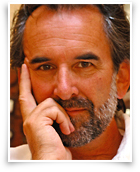
Richard Harvey
connecting psychotherapy and spiritual growth for human awakening
The Role of Acknowledgement and Support in Therapy and Counseling
Acknowledgment and support are vital for inner work, therapy and counseling. Support entails encouraging, listening, understanding, not interfering, being present, and refraining from inner blindness, denial, prejudice, judgment or projection. Acknowledgement involves quietly noticing, valuing inner changes and appreciating the growing process, calm understanding, and a sense of knowing, being life-affirming, unafraid and uninhibited by ignorance. The inner search may conflict with our loyalty to our loved ones. Our inner discoveries may not be believed by others too. Either through cynicism or fear, the negative response of others can be enough to plant in us seeds of doubt.
For people who enter therapy or counseling genuine support and acknowledgement, both inward and outward, are vital. The inner nature of counseling and therapy, particularly when it touches the spiritual and soulful realms, makes genuine acknowledgement and support vital.
Acknowledgement and support cultivate inner strength, give us the will to endure and deepen our trust in the healing process. When the results of counseling are intangible, in-visible, undefined or slow-going, genuine acknowledgement and support may sustain us through periods of uncertainty or despair.
Support entails encouraging, listening, understanding, sometimes not interfering and ‘being there’, uninhibited by inner blindness, denial, prejudice, judgment or projection.
Acknowledgement is more tricky. Sometimes it is quietly noticing, valuing the changes and the growing process; sometimes it is a calm understanding, a knowing of experience. It is life-affirming and unafraid, uninhibited by ignorance of inner processes, lack of depth, awkwardness about silence or unawareness. Instinctively we may look for these things in the people we are closest to. But often they are unable to meet our needs, because they feel threatened.
Personal counseling suffers when our inner search conflicts with our loyalty to our loved ones. When husbands, wives, relatives or friends are antagonistic to our personal growth and withdraw their support, we may have to choose between loyalty to others and loyalty to ourselves. If we choose the former we become alienated from ourselves, if we choose the latter we become estranged from our loved ones.
If the people close to us have never engaged in inner work, they may find it difficult to give us the support we need. They may be unable to understand what we are going through and it is unlikely that they will respond positively to our growthful changes. They tend to be invested in our remaining as we are, or, when they see some ‘fault’ in us, in correcting it in a way they prefer. Either way, they cannot provide the kind of openness and acceptance we need.
In family relationships and friendships, we play roles and when we step out of these roles life becomes less comfortable, for us and them. Like suddenly changing your steps in the middle of a well-rehearsed dance routine, everyone is thrown off.
Openly sharing our new insights in therapy can arouse denial and defensiveness in others. In his book, The Alchemist, Paul Coelho shows us that blatant honesty may even invite ridicule. Sometimes stating the bare truth sounds so preposterous to the prejudiced listener that it is certain to be treated as a joke.
Following a series of adventures the boy and the alchemist are riding through the desert with the legendary Philosopher’s Stone and the miraculous Elixir of Life in their saddle bags, when they come across a group of Arab bandits. The leader demands to know what they are carrying and the alchemist replies that they have an elixir that dispels illness and a stone that turns metal into gold. The bandits burst out laughing and allow the two of them to ride on with their belongings. The boy, thinking that the alchemist has gone crazy, asks why he openly revealed their precious cargo. The alchemist replies, ‘To show you one of life’s simple lessons… When you possess great treasures within you, and try to tell others of them, seldom are you believed.’ (1)
Our inner discoveries may not be believed by others too. Either through cynicism or fear, the negative response of others can be enough to plant in us seeds of doubt.
The effects of inner work become outwardly visible over time, but the last people to notice any difference are often the ones closest to us. Unless they are also working on themselves, their image of us may be so strong that they resist even obvious outward signs of our inner changes.
(1) Coelho, Paulo, The Alchemist, Thorsons 1995, pp.140-141.
Share this article
This article was first published in 2011.